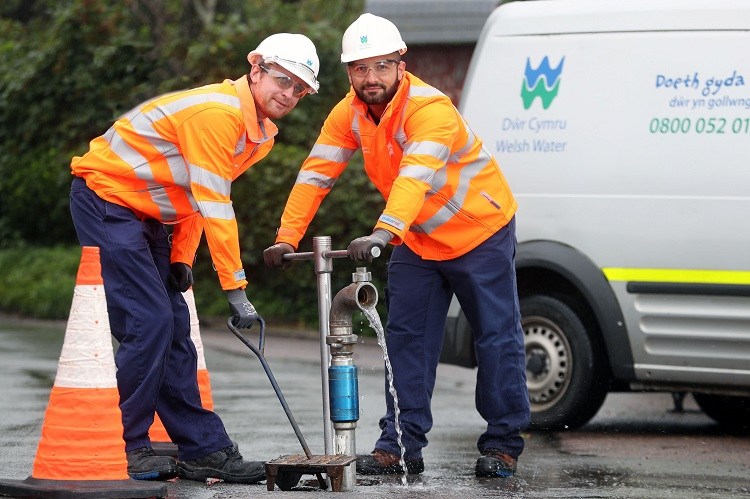WELSH Water plans to start installing smart meters in two years’ time as part of a wider strategy to reduce demand.
Like energy meters, the idea is that real-time information about usage would encourage customers to use less water. Drought risk is expected to increase due to climate change.
Smart meters would also enable Welsh Water to target customer supply leaks more effectively.
The not-for-profit company aims to start installing them in properties which don’t already have a meter from 2025 onwards, according to its latest long-term water resources management plan (WRMP).
Welsh Water serves just over three million people. As March 2021, only 47% of its customers had a meter – most of which are read manually – compared to an industry average of 63%.
Water companies have to publish new WRMPs every five years. These plans ensure there is enough water for homes and businesses while protecting the natural environment, and set out a company’s approach for at least the next 25 years.
The new WRMPs come into effect in 2024, and Welsh Water aims to improve its management of water demand, meet new drought resilience targets set by the government, and factor in the latest climate science.
Last summer’s drought led to very low reservoir levels across most of South Wales and parts of North East Wales. A temporary hosepipe ban was introduced in Pembrokeshire.
Welsh Water’s draft WRMP said four of 23 “water resource zones” throughout the large area it serves were not considered resilient in terms of a one-in-200-year drought risk. These zones comprise a big chunk of south and mid Wales – known as the Twyi Gower zone – the mid and south Ceredigion zone, the Clwyd coastal zone, and a large zone covering South East Wales.
The draft WRMP said the mid and south Ceredigion zone was “of particular concern”, and that customer demand last summer – driven partly by tourism – couldn’t be met by local water treatment works during two particularly hot spells.
It said recent climate change data meant that Welsh Water’s “supply capability” was expected to reduce further in the longer term.
But the company said it now had better modelling of drought resilience, and had undertaken or planned work to improve it in the four water resource zones considered in need of upgrades.
Welsh Water also has separate plans to reduce leaks by 25% between 2020 and 2030.
The actual quantity of water supplied to customers has dropped by 15% in the last 25 years, partly due to reduced demand from heavy industry. And it’s not as if rain is a rarity in Wales.
The draft WRMP said: “Wales has a significant amount of rain: we estimate that our infrastructure captures only some 3% of the effective rainfall, leaving some 97% for agriculture and the environment, compared to the south-east of England where up to 50% is used for public water supply.

“Most of our water is supplied from our impounding reservoirs although we abstract significant volumes from our lowland river sources such as those on the Rivers Wye and Usk in South East Wales, the rivers Tywi, Cleddau and Teifi in South West Wales and the River Dee in North Wales.
“Groundwater accounts for less than 5% of our supplies but at a local level may be the whole supply. On the face of it then, we should not have a water resources problem in Wales, however, we need to continually review the future pressures on our water supplies.”
Water regulator Ofwat has assessed Welsh Water’s draft WRMP and said it delivered on several expectations, but not on others.
Ofwat urged the company to explain discrepancies in supply and demand, provide convincing evidence that the options put forward to improve resilience were appropriate given the challenge presented, and improve the supporting evidence in tables it supplied.
Ofwat chief executive David Black said water companies had to prepare properly for population growth and the impact of climate change.
“Our assessment of draft plans (WRMPs) shows that companies have more work to do to develop their proposals to meet future challenges,” he said.
Final plans will be reviewed by Ofwat later this year.
A Welsh Water spokeswoman said it had consulted widely on its draft WRMP, and added: “Having received detailed feedback from 13 stakeholders including Ofwat’s response, we are currently in the process of reviewing their comments.”
















